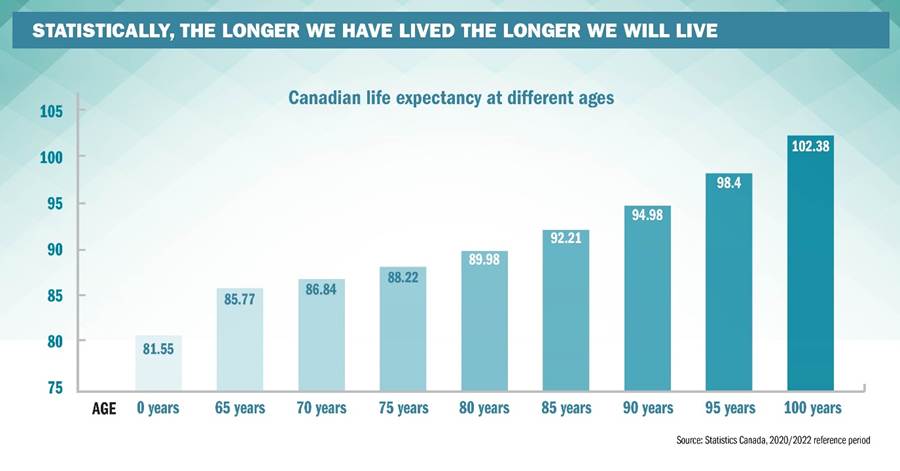“If we have a look at a few of what registered psychologists have talked about, Canadians have to retire to one thing,” Staples says. “That’s notably the case for males. As workers, we get a number of our price, our self-worth, and our sense of how we contribute to the world from our jobs. Statistically, girls usually tend to have a bigger social community outdoors of the office. It’s typically simpler for girls to transition into publish work as a result of they have already got that community established whereas males will battle extra. So, we’ve got to have a look at what their identification might be in retirement. I believe that is the place monetary advisors can actually add worth, by starting that dialog round retirement identification.”
In fact, monetary foundations are key to establishing that retirement identification. In that space, too, Staples notes the challenges that many Canadians face. She cites analysis carried out by G Schellenberg and Y Ostrovsky within the leadup to the GFC which famous the significance of entry to a pension plan — ideally an outlined profit pension plan — in serving to individuals really feel safe sufficient to retire. Over the previous three a long time, Staples says, we’ve got seen declining pension entry in Canada. That lack of entry, she says, is a key cause why fewer Canadians are retiring early. On the identical time, Canadians live longer, which means they’ve to avoid wasting and funds for an extended retirement, typically with out the help of an employer-sponsored pension plan.

Many Canadians are coming into pre-retirement with appreciable quantities of debt, too. Many are additionally getting older with the expectation that their CPP and OAS advantages will perform as their pension earnings — reasonably than only a backstop in opposition to dire poverty. Staples says that the earnings cohort between roughly the common industrial wage and round $120,000 is the place monetary advisors could make a big impression. That cohort, she says, lacks significant retirement financial savings, whereas carrying the very best proportion of debt relative to earnings and property. This leaves them weak to expertise retirement earnings insufficiency with out an employer pension. They will not be conscious of their scenario, both, as some count on authorities pensions to supply them with sufficient. They very seemingly have some critical challenges to beat earlier than they’ll securely retire, and advisors will help them a fantastic deal.
The difficulty, for advisors and advisory corporations, is that this earnings cohort just isn’t precisely worthwhile. Fee-based advisory providers are much less incentivized to assist with the monetary plans these Canadians want. Payment primarily based advisors, on the identical time, are incentivized to chase bigger account sizes. In in search of options Staples says she has encountered pro-bono applications supplied in america. Whereas Canada is behind our US counterparts considerably, Staples notes a number of efforts similar to the push by FP Canada to extend entry to monetary planning. The Monetary Planning Affiliation of Canada (FPAC) additionally has a pro-bono committee the place members frequently volunteer their time to assist construct plans for Canadians

